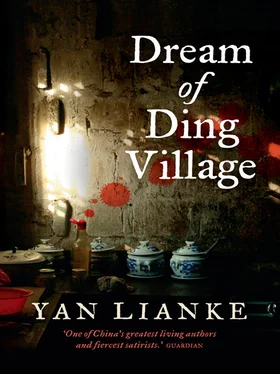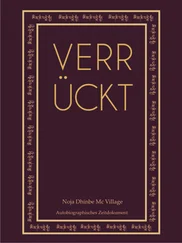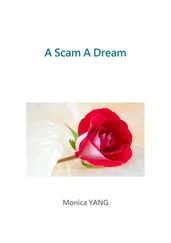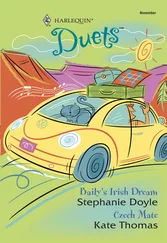‘Ding Liang,’ she spoke quietly, ‘I think you’ve forgotten that I’m married to your cousin.’
‘If he treated you well, the thought never would have crossed my mind,’ Uncle answered. ‘But your husband hasn’t been good to you, has he? He even beat you. No matter how badly my wife treated me, I never raised a hand to her.’
‘But for better or worse, you and my husband are family. He thinks of you as an older brother.’
‘Family, older brother, younger brother. . what does any of that matter now? You and I are going to die soon.’
‘If anyone ever found out, they’d skin us alive.’
‘So let them. We’re not going to be alive much longer, anyway.’
‘I’m serious. If word got out, they’d kill us.’
‘Like I said, we’re all going to die soon. If people find out, at least you and I can die together.’
Lingling raised her head to look at Uncle. She gave him a searching look, as if she were trying to gauge whether or not he really was the person he said he was, a person who was going to die soon. His face, normally so pale in the daylight, looked different in the shadows, little more than a dark blur. The condensation from his breath was white against the darkness. When he spoke, it warmed her face like steam rising from a kettle.
‘When we’re dead,’ she said, ‘will we be buried together?’
‘I hope so,’ he answered.
‘My husband told me that even after he was dead, he didn’t want to be buried next to me.’
‘I hope they bury me next to you,’ Uncle said, moving his body closer.
He attempted an embrace, first taking hold of Lingling’s hand, then wrapping his arms around her. He held her as if she were a lost lamb that he’d found after years of searching. He held her tightly, as though fearing she might change her mind and try to run away again. Stroking his chest with her fingers, she allowed him to hold her.
The night was nearly over. Soon it would be light again, just another day. From across the plain came the sounds of morning stirring after a long night’s rest. This was the hour when snowdrifts, hidden in the shadows, hardened into ice. Snowflakes turned to hail, rattling through the sky like tiny grains of rice. They pattered on to the rooftops and covered the schoolyard, landing on Lingling and Uncle, as they sat huddled together, still wrapped in one another’s arms.
They sat like that for a long time. Then, without a word, they both stood up. They made their way silently to a small room next to the kitchen. It was a storage room used for food supplies and other odds and ends. Somehow, tacitly, it was the room they had decided on.
The room was warm, and they in turn filled the room with warmth.
There, in that storage room, they recaptured what it meant to be alive.
3
Ding Village basked in the warmth of a brilliant sun. In every direction, flowers had burst into bloom almost overnight, sweeping into the village like a tide. Luxuriant blossoms lined every street, filled every courtyard, carpeted the fields outside the village gates. Even the dried-up channel marking the ancient path of the Yellow River was a profusion of flowers: chrysanthemums, plum blossoms, peonies, roses, wild orchids, winter jasmine, dandelions, dog-tails and several kinds of flowering grasses usually only found on mountaintops. There were shades of red and yellow, purple and pink, orange and lavender and white; purplish-red and reddish-purple, greenish-blue and bluish-green, aqua tinged with jade. There were flowers of every shape and colour, strange varieties you couldn’t begin to name — some as big as serving bowls, others small as buttons. They grew from the walls and roofs of pigsties, over chicken coops and cow pens, their pungent scent wafting through the streets, washing over Ding Village like a flood, a perfumed tide . .
Unable to fathom how hundreds of flowers could have bloomed so suddenly, Grandpa prowled the streets suspiciously, looking for signs. As he crossed the village from east to west, he noticed that the faces of the villagers — elders, adults and children alike — were all smiling. They bustled back and forth along the flower-lined streets, some balancing cloth-covered wicker baskets swinging from bamboo shoulder poles, others lugging sacks tied with rope and bulging with mysterious contents. Even tiny boys and girls of no more than a few years old seemed to be carrying heavy bundles. When Grandpa tried to ask what they were doing, no one stopped to answer him. Everyone appeared to be in a terrible hurry, rushing to and from their homes, not walking so much as running, racing from place to place.
Grandpa began to follow a group of villagers, trailing them through flower-filled streets. It wasn’t until he reached the west end of the village that he saw what all the fuss was about: the surrounding fields were quite literally awash with flowers, a vast sea of them, an endless expanse of petals rippling in the breeze. It was magnificent. Even the sky above seemed tinged with their colours: blushing, feminine pinks and faintly erotic yellows. The villagers clustered in groups, hard at work in their families’ fields. The men wielded pickaxes, and seemed to be digging up the soil around the roots of flowering plants and trees. It was as if they were rushing to break the soil and get their crops of sweet potatoes or peanuts planted before the winter set in.
Grandpa also caught sight of Li Sanren, the former mayor of Ding Village, out in his family’s field. Usually so sombre and silent, he was smiling broadly as he worked alongside the other villagers. His forehead was covered in perspiration, his backside jutting out as he dug his shovel into the ground. Every so often, he would bend over, pick up a flowering plant he had unearthed and shake clods of dirt from its roots before tossing it aside and moving on to the next one. After he had uprooted and shaken a few dozen, he would squat down next to his wife and children to gather the clods of dirt from the ground and toss them into two wicker baskets. When the baskets were full, he covered them with bed sheets, lifted them on a shoulder pole and headed for home. Staggering under the weight of those baskets, Li Sanren seemed in danger of falling, but he soldiered on, forcing himself to keep walking . .
Once upon a time, Li Sanren had been the mayor of Ding Village. Just a few years younger than Grandpa, he was a former military man who had been posted to the pleasant city of Hangzhou, known throughout China as ‘the paradise of the south’. In a fenced-off army barracks outside the city, he had served his country, received commendations for his service and become an official member of the Chinese Communist Party. But when the time came for him to be promoted, he had a sudden realization. After much soul-searching and nail-biting, he penned a letter to his commanding officers. It read like a blood oath: in it, he vowed to return to his hometown and help transform Ding Village into ‘a paradise of the north’.
And so he left the army.
Over the next few decades, Li Sanren worked day and night helping the villagers to plant and harvest, irrigate their fields and collect manure for use as fertilizer. When the higher-ups said to turn the soil, he did. When they said to plant wheat seedlings or cotton, he did. But years passed like days, and soon decades had gone by. Other than an increase in population, the village was unchanged, exactly the way it was when he’d started. In all those years, Ding Village had not managed to add a single new tile-roofed house. It had not acquired a single new piece of machinery or farm equipment. Even the number of pull-tractors was exactly the same. The surrounding villages of Willow Hamlet, Yellow Creek and Two-Li Village were also still quite poor, but Ding Village was skeletally poor by comparison. A village of skin and bones.
Читать дальше












